Everything You Need to Know About Parkville Water Heater Replacement Cost
If you've decided to replace your water heater, it is essential to have a clear understanding of the costs involved. Whether you are considering an electric or gas water heater, it is crucial to be well-informed about the potential expenses associated with upgrading this indispensable appliance in your Parkville-area household. By conducting thorough research and gathering relevant information on the cost factors, you can make a knowledgeable decision that not only suits your budget but also guarantees a dependable hot water system for your home.

When do you need to replace a water heater?
Knowing when to replace your water heater is crucial for ensuring a continuous flow of hot water in your household. Consider the following factors when making this decision:
Age: Generally, water heaters have a lifespan of 8-12 years. If your unit exceeds this range, it's likely time for a replacement.
Corrosion: When you observe rust or corrosion on the tank, it is a clear indication that a replacement is necessary.
Leaks: Although certain leaks can be fixed, others may require replacing the entire unit to resolve the issue effectively.
Insufficient hot water: If you notice a decline in your hot water supply or find yourself running out of hot water sooner than usual, it is a strong indication that your water heater is due for replacement.
For optimal performance and uninterrupted hot water supply in your household, it is crucial to adopt a proactive approach rather than relying on a failing old water heater. By engaging in regular maintenance tasks like flushing the tank to eliminate sediment, inspecting the heating elements, and checking for leaks, you can significantly extend the lifespan of your water heater. It is also important to remain attentive to warning signs that suggest the need for a replacement, such as advanced age, corrosion, leaks, and inadequate hot water production. By promptly addressing any emerging issues, you can prevent them from escalating into major problems.

What affects the cost of replacing a water heater?
When considering the cost of replacing a water heater, there are several factors that can influence the overall price. It is important to take these factors into account when budgeting for a water heater replacement. Consulting with a professional is recommended to obtain accurate estimates and guidance based on your specific situation.

One factor that affects the cost is the type of water heater you choose. Different water heater types, such as tankless or traditional tank models, can have varying prices. Factors such as size and energy efficiency ratings can also contribute to the cost difference between these types.
The size of the unit is another consideration. Generally, larger water heaters will come with a higher price tag due to their increased capacity. It is essential to determine the appropriate size for your household's needs to avoid overspending on a unit that is too large or experiencing insufficient hot water with a unit that is too small.
Additional features or extras can also impact the cost of replacement. For example, water heaters equipped with automatic shutoff valves or pressure relief valves may come at a higher price point compared to basic models. These additional features provide added convenience and safety, but they can increase the overall cost.
The cost of installation is another variable to consider. Factors such as the complexity of the project, the need for additional materials, and the installation of new pipes or venting systems can influence the installation costs. It is advisable to have a professional assess the installation requirements and provide an accurate estimate based on your specific situation.
Labor costs for professional plumbers can also affect the overall cost of replacing a water heater. Plumbers may charge an hourly rate or a flat fee for their services. It is important to factor in these labor costs when estimating the total expense of the replacement.

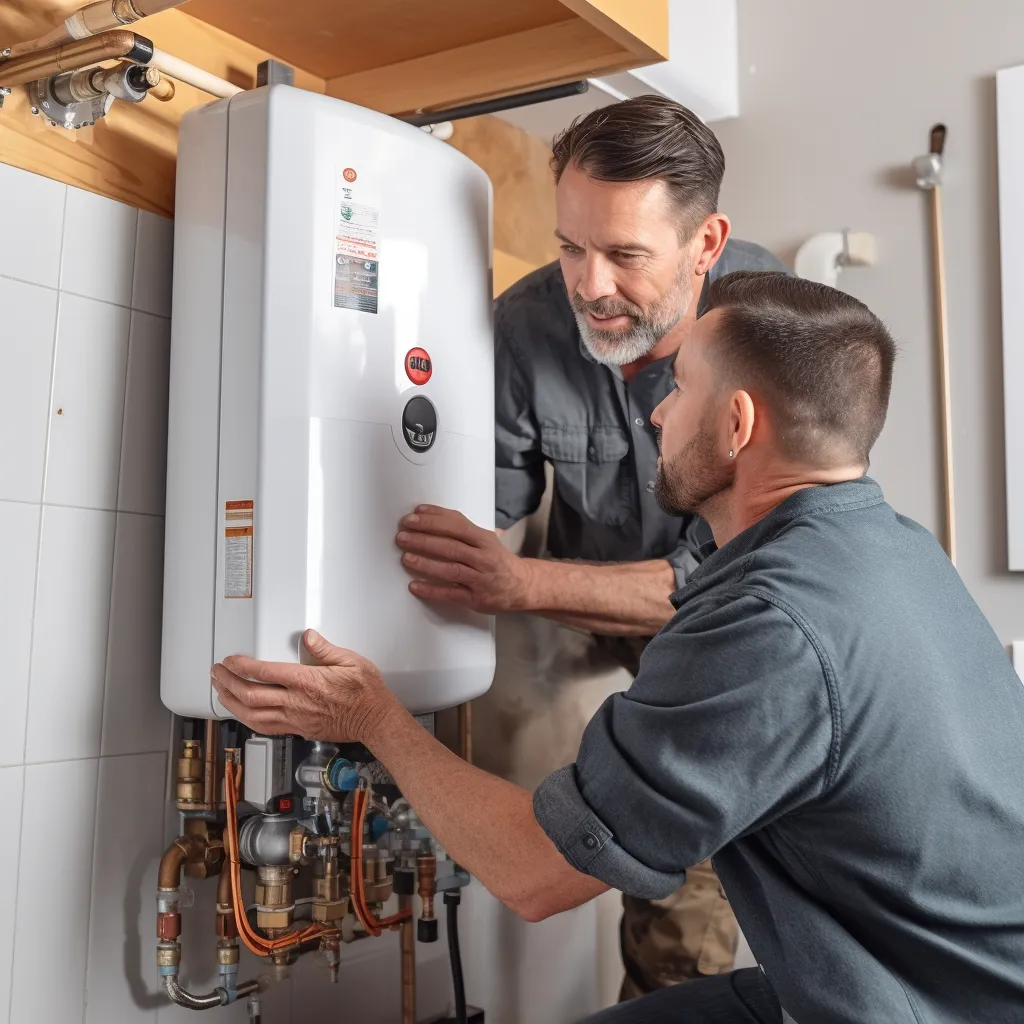
Replacing with energy-efficiency in mind
Investing in an energy-efficient water heater offers numerous advantages:
Energy-efficient water heaters lead to reduced utility bills as these models consume less energy, resulting in long-term cost savings and lower monthly expenses.
These water heaters provide enhanced comfort by ensuring a consistent and comfortable flow of hot water. You can rely on them to deliver the optimal temperature you need, meeting your requirements effectively.
Energy-efficient water heaters are designed with high-quality materials and advanced technology, enhancing their durability and reliability for long-term usage.
Choosing an energy-efficient water heater is an eco-conscious decision as it helps in reducing energy consumption and lowering greenhouse gas emissions, thereby contributing to a greener and more sustainable environment.

How to calculate the size
of the water heater you need for your home
When determining the appropriate size for your hot water heater, it's important to consult with a professional who can provide personalized recommendations based on your specific needs. There are several factors that should be taken into consideration:
The number of people in your household will play a significant role in determining the amount of hot water required. Larger households generally have a higher demand for hot water, so a larger capacity water heater may be necessary.
Another factor to consider is your hot water usage patterns. If you have multiple bathrooms or frequently use hot water for tasks such as laundry and dishwashing, you may need a larger tank to ensure an adequate supply. It's important to assess your typical hot water needs to determine the appropriate size.
If you live in a colder climate, it's advisable to consider a larger tank. This is because colder incoming water temperatures require more energy to heat, and a larger tank can compensate for this, ensuring that you have enough hot water to meet your needs.
You should consider the physical space available for the water heater installation. It's essential to choose a size that can fit comfortably in the designated area. Taking measurements and considering any space constraints will help ensure a proper fit.


Research the different types of water heaters
There are several water heater options to consider. One of the most common choices is a traditional tank water heater. These units store a significant amount of hot water in a tank and keep it heated until it's needed. On the other hand, tankless water heaters are designed to heat water as you require it, providing you with instant hot water without the need for a storage tank. Hybrid water heaters combine the advantages of both tank and tankless systems, delivering energy-efficient performance and a continuous supply of hot water. Another eco-friendly alternative is solar water heaters, which utilize the sun's energy to warm the water, reducing your dependence on conventional energy sources. Lastly, heat pump water heaters are known for their energy efficiency and cost-effectiveness as they extract heat from the surrounding air or ground to heat the water. By carefully evaluating your household's specific requirements, energy efficiency objectives, and budgetary considerations, you can make an informed decision and select the ideal type of water heater for your home.
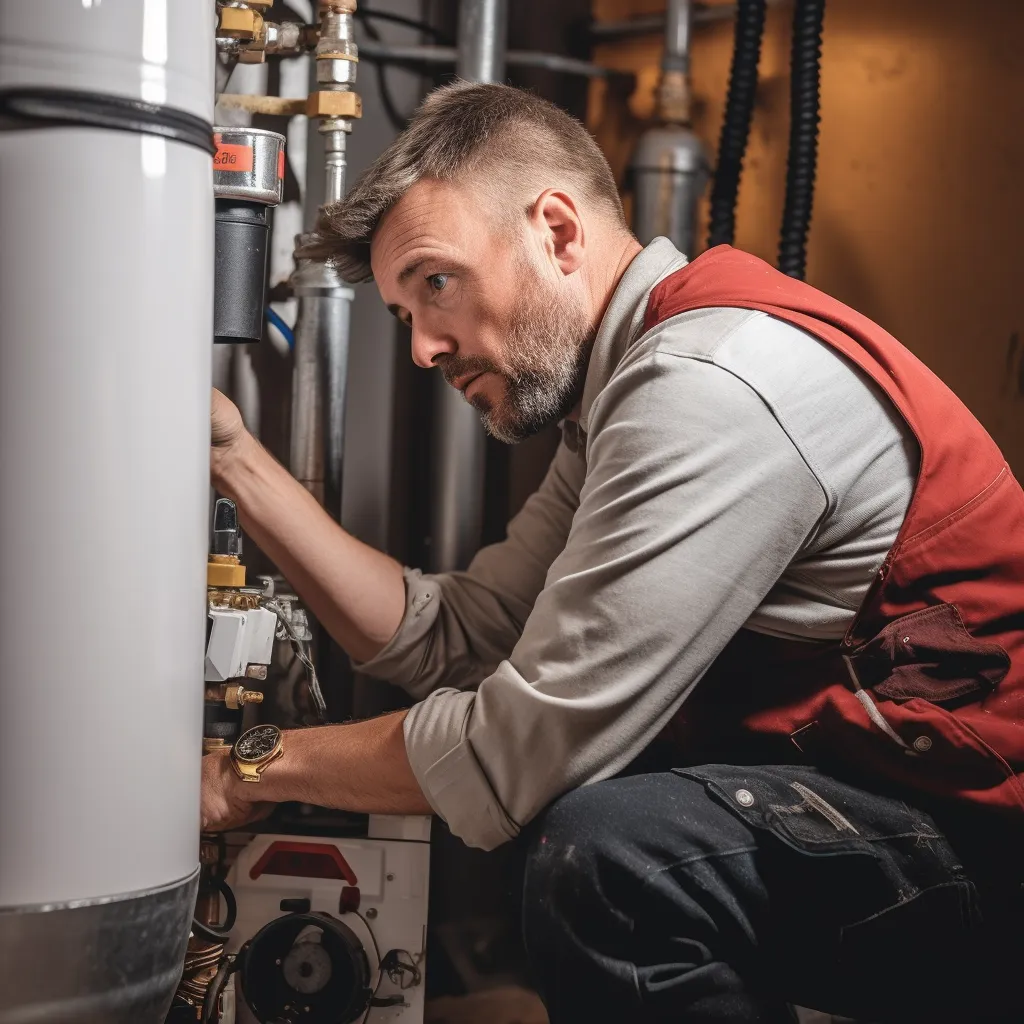
Cost of each type of water heater
Water heater replacement can be a costly endeavor, and the overall expense can vary based on the type of unit you select. There are several options available, each with its own set of advantages and considerations:
If you opt for traditional tank heaters, you'll find them to be reasonably priced initially. However, it's important to note that they tend to result in higher energy bills and have a relatively shorter lifespan compared to other alternatives.
On the other hand, tankless heaters boast a longer lifespan and lower energy costs over time. Although they may have higher upfront costs, their energy efficiency makes them a worthy investment in the long run.
Heat pump heaters fall into the moderate price range and offer substantial long-term savings. They are a popular choice for those seeking cost-effective solutions.
For environmentally conscious individuals, solar heaters present an appealing option. While they can be quite expensive initially, they deliver significant long-term cost savings while being eco-friendly.
If you're looking for innovation and convenience, smart heaters are worth considering. These cutting-edge models provide remote control capabilities and incorporate energy-saving features.
Condensing heaters are known for their exceptional efficiency. While they come with a higher price tag, their performance justifies the investment for those seeking maximum energy savings.
When deciding between gas and electric models, it's crucial to factor in the cost aspects. Gas heaters tend to have lower upfront expenses, while electric heaters offer improved energy efficiency.
Direct vent water heaters are the most economical choice available. If affordability is your primary concern, these models are worth exploring. Alternatively, power vent water heaters are slightly more expensive but offer added benefits.
Cost of installation and ongoing maintenance
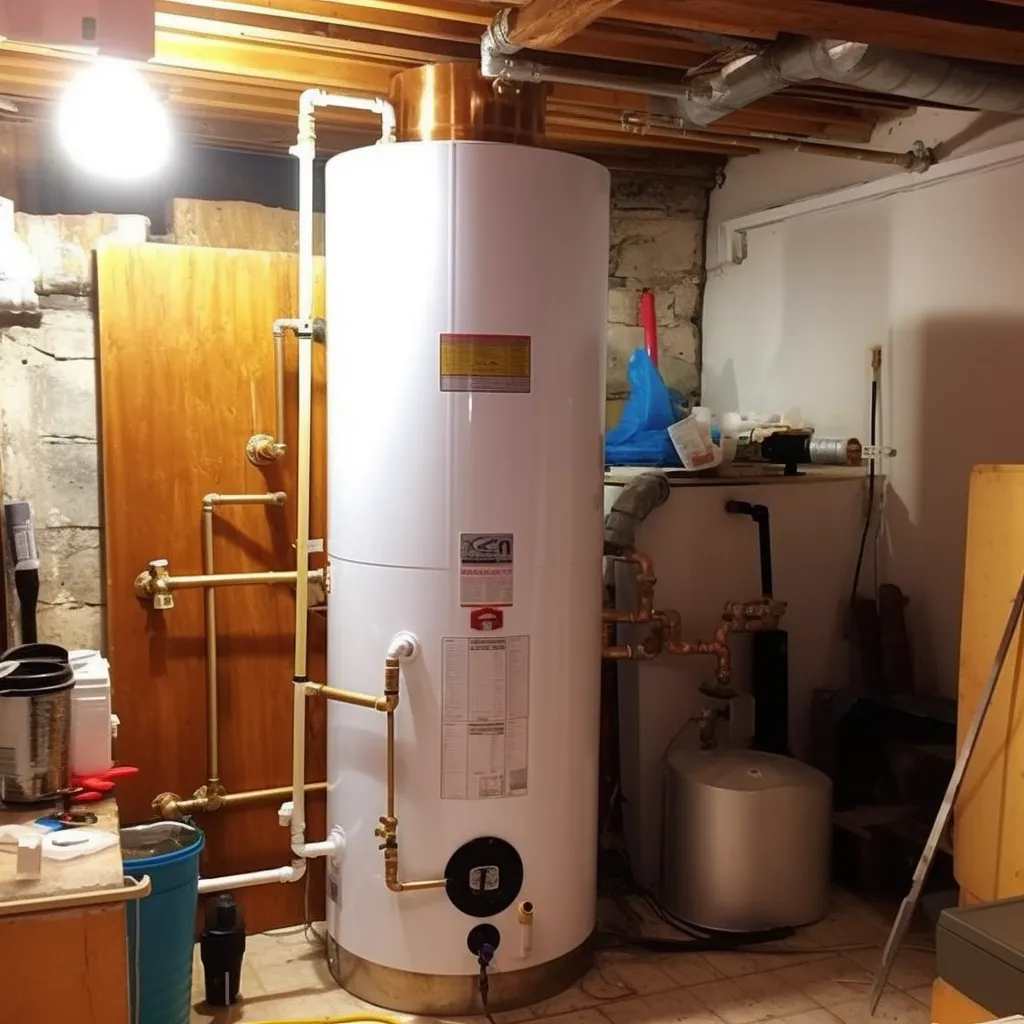
When choosing a water heater, it's crucial to keep in mind the expenses involved in installation and upkeep. Here are some key takeaways:
For tank water heaters, the installation costs are generally lower, but the maintenance expenses can be higher in the long run.
On the other hand, tankless water heaters may have higher installation costs, but they tend to be cheaper to maintain, resulting in cost savings over time.
Heat pump water heaters have installation costs similar to tankless heaters, but their maintenance expenses might be slightly higher.
Solar water heaters typically have higher installation costs due to their connection to the home's plumbing system.
Additionally, it's essential to consider the fuel costs associated with each type of water heater. Gas heaters are often more cost-effective than electric models due to lower energy costs. However, it's important to note that fuel availability can vary depending on your location.

How to get an accurate estimate
for the cost of a water heater
Determining the precise cost of replacing your water heater, including installation, can be a challenging task that requires thorough research for an accurate estimate.
When selecting a water heater, it's important to take into account your household size and hot water usage patterns. These factors will guide you in determining the ideal size and type of water heater that suits your needs.
To accurately gauge the expenses involved in installing or upgrading your water heater system, it is advisable to obtain quotations from various local plumbing companies. By doing so, you can compare prices and services to make an informed decision.
It's essential to take into account various factors such as the price of the unit itself and any associated warranties or additional features. These considerations play a significant role in determining the overall expense.
Tips to save money on installing a new water heater
It's important to keep these money-saving tips in mind if you're looking to upgrade your water heater:
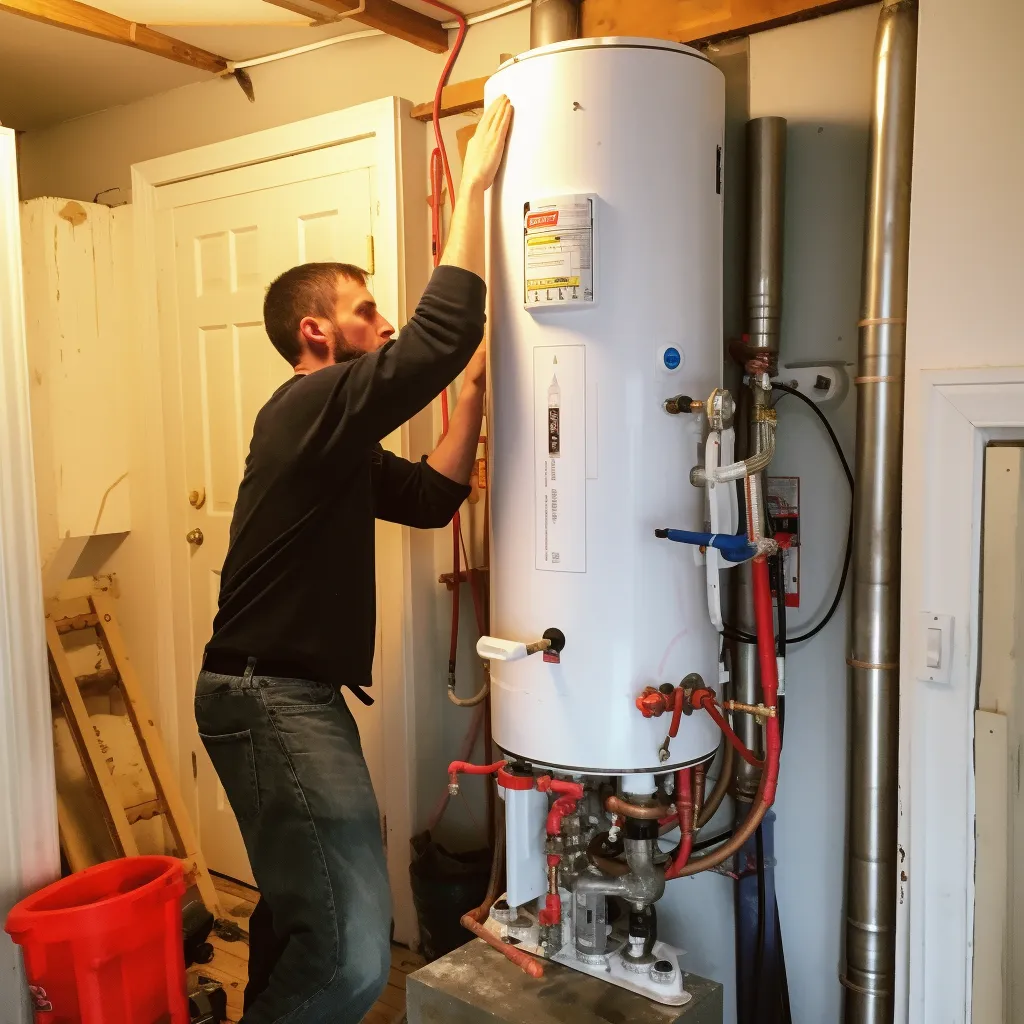
Compare prices: To get the best deal, compare prices from different retailers and plumbing companies.
Check for rebates and tax credits: Find out if your local utility company offers any rebates or tax credits for purchasing an energy-efficient water heater. This can help you save money upfront.
Opt for energy efficiency: Investing in an energy-efficient model can lead to long-term savings on your monthly utility bills. Look for water heaters with high energy efficiency ratings.
Consider total cost of ownership: Don't just focus on the upfront cost of the water heater. Take into account the total cost of ownership, which includes maintenance, repairs, and energy consumption. A slightly more expensive model may end up being more cost-effective in the long run.
Take advantage of bundle deals and promotions: Manufacturers and retailers often offer bundle deals or promotions on water heaters. Keep an eye out for such offers to save some money.
Be cautious with used water heaters: If you're considering a used water heater, be cautious and thoroughly inspect it before making a purchase. Ensure that it's in good condition and has a reasonable lifespan remaining.
Hire a professional: Installing a water heater requires specialized tools and knowledge. It's recommended to hire a professional plumber or technician to ensure proper installation and avoid any potential issues down the line.
What to do if you need services
to replace your water heater
If your water heater is failing and you're considering a replacement, hiring a licensed water heater professional is the best approach. Here are some tips to help you choose the right expert for the job:
Request a detailed cost estimate that includes the price of the water heater unit, labor charges, and any additional materials or permits required.
Consider reading customer reviews or seeking recommendations from friends and family to ensure the professional has a good reputation.
Compare quotes from multiple professionals to get a sense of the average cost and find the best value for your money.
Ensure that the professional is knowledgeable about the latest water heater technologies and can provide advice on energy-efficient options.
Remember to ask about maintenance and servicing options for your new water heater to prolong its lifespan.
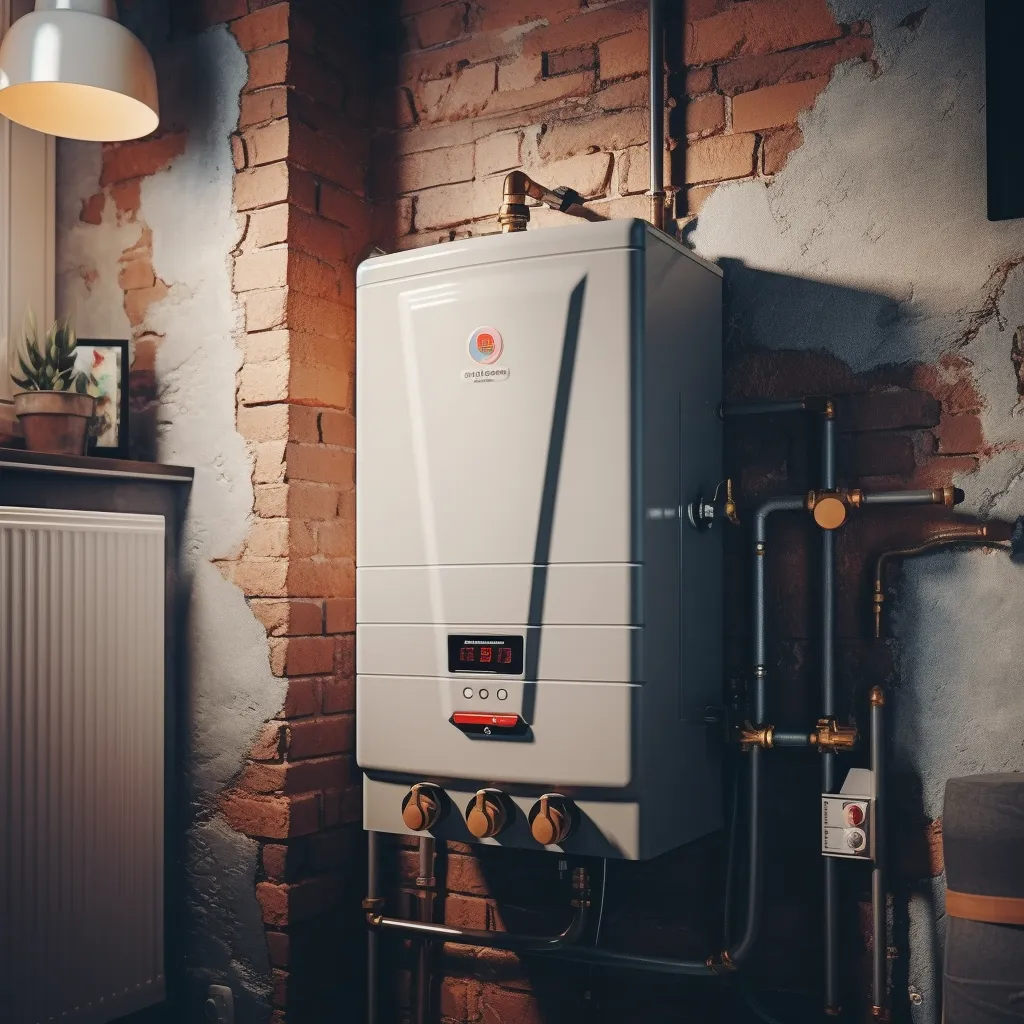
A reliable professional will be able to:
Our experts are skilled in assessing water heaters, determining if repairs or replacements are necessary. You can rely on us to provide a detailed estimate that covers everything from labor to materials, including applicable taxes.
When it comes to selecting the perfect water heater for your specific requirements, our team will guide you through the process. We consider crucial factors like size, efficiency, and price to help you make an informed decision.
Rest assured, our experienced technicians will handle the entire installation process seamlessly. From removing the old water heater to setting up the new one, we've got you covered. We take pride in our workmanship and the quality of the parts we use. For added peace of mind, we offer warranty coverage on our services.
Choose our reliable water heater experts for top-notch service and a hassle-free experience.

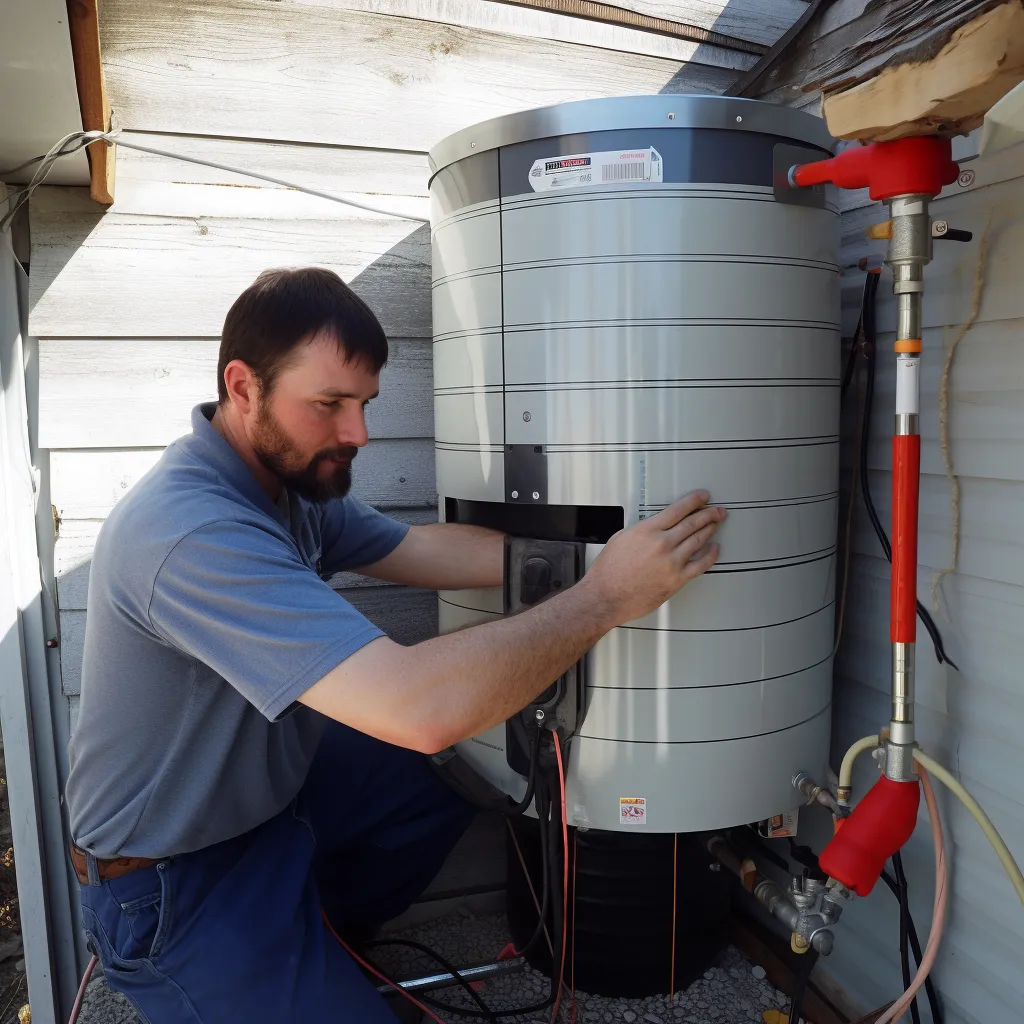
Water heaters don't last forever
Determining the right time to replace or retain your water heater is crucial for optimal performance. The average lifespan of a water heater typically falls between 6 to 12 years, influenced by factors such as usage patterns and efficiency. When contemplating a replacement, there are various cost-related considerations to keep in mind. These include the type and size of the water heater, along with installation and maintenance expenses. Additionally, exploring potential benefits like rebates, incentives, or extended warranties can impact the overall cost. It is essential to conduct thorough research and compare different water heater models to make an informed decision. Seeking guidance from a licensed professional can provide valuable assistance, potentially saving you both time and money in the long run.
Contact Us
GET IN FULL TOUCH
PHONE: (410) 883-5584
EMAIL:
william@waterheaterparkville.com
Strong Plumbing Parkville
Parkville, MD 21234
